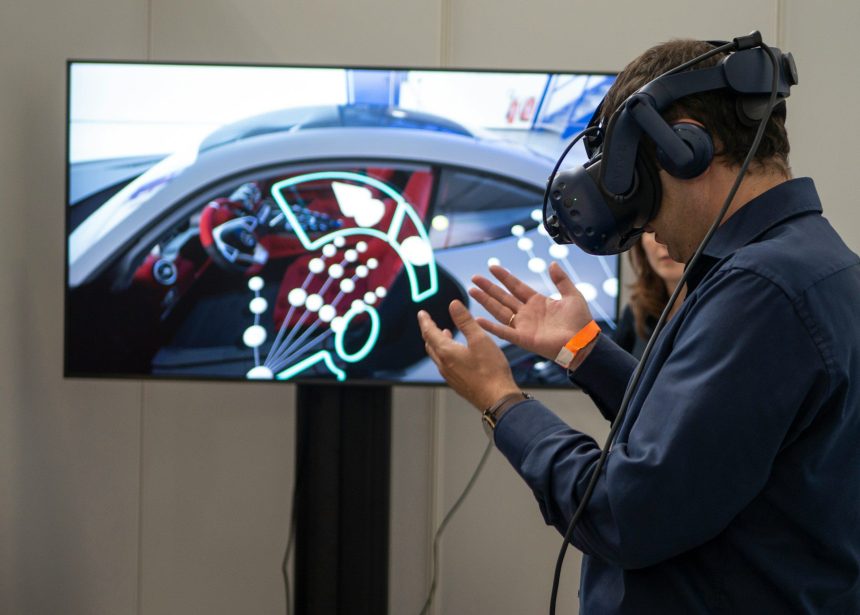Introduction
Virtual Reality (VR) has evolved from a niche technology to a transformative force, reshaping how we interact with digital content. This article delves into the intricacies of virtual reality development services, exploring their applications, significance, and the key features that make them indispensable in various industries.
Evolution of Virtual Reality
The journey of virtual reality dates back to the mid-20th century, with technological advancements paving the way for immersive experiences. From the rudimentary Sensorama in the 1950s to the Oculus Rift in recent years, VR has come a long way, creating a paradigm shift in how we perceive and engage with digital environments.
Applications of Virtual Reality
One of the driving forces behind the surge in virtual reality development services is their diverse applications. From revolutionizing the gaming industry to transforming healthcare and education, VR is not just a form of entertainment but a tool with immense potential for positive change.
Importance of Virtual Reality Development Services
The bespoke nature of VR development services allows for tailored solutions across various sectors. Businesses can leverage these services to enhance user experiences, gain a competitive edge, and foster growth by tapping into the unique opportunities offered by virtual reality.
Key Features in VR Development
Immersive environments, realistic simulations, and interactive interfaces are the cornerstone features of VR development. These elements work in synergy to create a seamless and captivating experience for users, transcending the boundaries of traditional digital interactions.
Challenges in Virtual Reality Development
Despite its potential, virtual reality development comes with its set of challenges. Technical complexities, high costs, and user adaptation hurdles pose obstacles that developers must navigate to ensure the successful implementation of VR solutions.
Top Virtual Reality Development Tools and Platforms
Leading the charge in virtual reality development are powerful tools and platforms such as Unity, Unreal Engine, and A-Frame. These platforms provide developers with the necessary resources to create immersive and cutting-edge VR experiences.
Steps in Virtual Reality Development Process
The journey from concept to reality in virtual reality development involves meticulous planning, design, prototyping, development, and rigorous testing. Each step is crucial in ensuring the final product meets the standards of quality and functionality.
Case Studies
Examining successful case studies reveals the tangible impact of VR development across various industries. From improving medical treatments to enhancing employee training programs, these case studies showcase the versatility and effectiveness of virtual reality solutions.
Future Trends in Virtual Reality Development
As technology continues to advance, so do the possibilities in virtual reality development. Future trends include advancements in hardware, integration with artificial intelligence, and the emergence of new applications that push the boundaries of what VR can achieve.
Choosing the Right Virtual Reality Development Partner
Selecting the right development partner is paramount for successful VR projects. Factors such as expertise, portfolio, and understanding of industry-specific needs should be carefully considered to ensure a seamless collaboration and the delivery of a top-notch VR solution.
Benefits of Investing in Virtual Reality Development
Businesses that invest in virtual reality development stand to gain numerous benefits. From improved customer engagement and training efficiency to market differentiation, the returns on investment extend beyond mere technological implementation.
Success Stories
Several companies have successfully integrated virtual reality into their operations, achieving remarkable outcomes. These success stories serve as inspiration for businesses looking to harness the potential of VR development for their own growth and innovation.
Conclusion
In conclusion, virtual reality development services are at the forefront of technological innovation, offering limitless possibilities for businesses and industries. The journey from inception to widespread adoption is marked by challenges, successes, and an ever-expanding landscape of applications.
FAQs What industries benefit most from virtual reality development? Virtual reality development has widespread applications, benefiting industries such as gaming, healthcare, education, and corporate training. How can businesses integrate VR into their existing operations? Businesses can integrate VR by identifying specific use cases, collaborating with experienced developers, and gradually incorporating VR solutions into their workflows. Are there any ethical concerns related to VR development? Ethical concerns in VR development include issues of privacy, potential addiction, and the responsible use of immersive technologies. What are the potential challenges in adopting virtual reality solutions? Challenges may include technical complexities, high initial costs, and the need for user adaptation, which businesses need to address for successful implementation. Can small businesses afford virtual reality development services? While costs vary, there are affordable virtual reality development solutions available, and businesses can explore options that align with their budget and objectives.
Related Items:Futuristic experience, virtual reality, virtual reality business developemnent Recommended for you The Transformative Impact of Virtual Reality in Healthcare: A Revolution in Patient Care and Training The Rise of Metaverse Tokens: A Deep Dive into Decentralized Virtual Assets The Benefits of AI-Powered Personalization in Gaming



